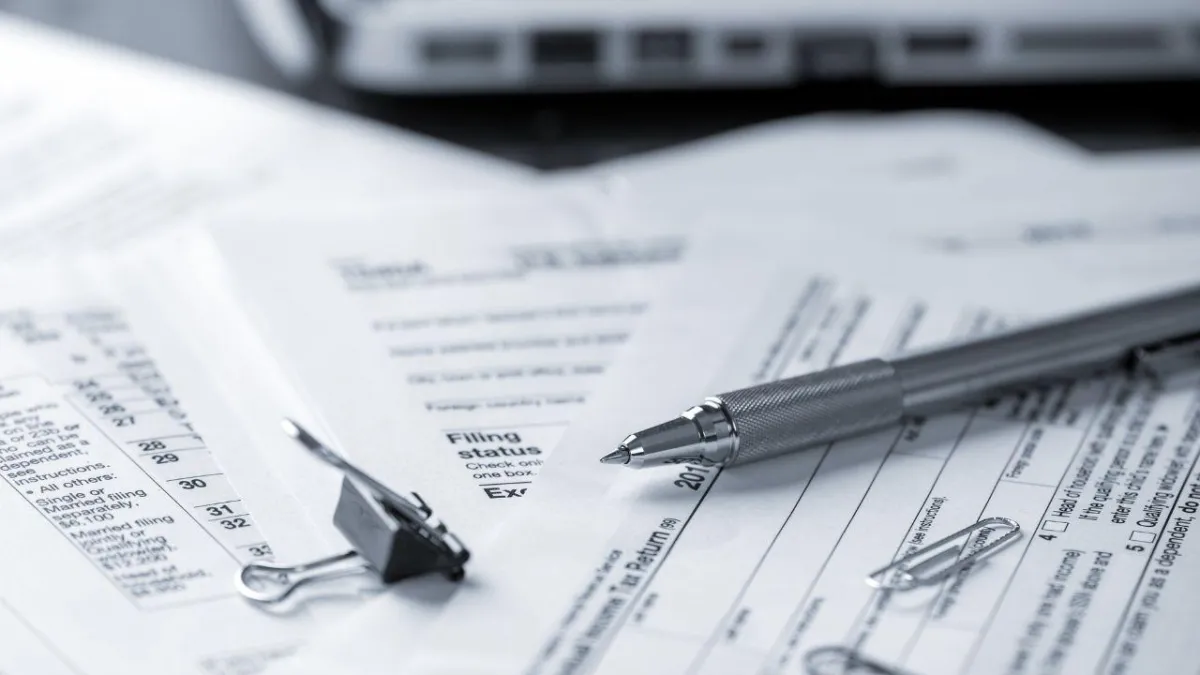By calling, you agree we may follow up to better assist you, even if your number is on a Do Not Call list.
Read Our Latest Blogs
Learn about tax relief and hear the latest news.

Understanding IRS Notice LT38: What You Need to Know
The moment you see those three letters on a red stamped envelope in the mail, you know the news will not likely be good.
A notice from the Internal Revenue Service (IRS) can mean many things, but what’s important is to deal with the letters as they come rather than stew in dread.
The communication we focus on here is Notice LT38, which signifies that tax debt collection was suspended during the pandemic and is now being asked to be repaid again.
This article aims to demystify Notice LT38, explaining its purpose, how to respond, and the potential consequences of inaction.
What Is Notice LT38 From the IRS?
Notice LT38, formally known as “Reminder Notice,” is an official notice from the IRS regarding unpaid taxes on your account.
It follows up on previous notifications about your tax debts from the IRS and the temporary suspension of collection efforts for some accounts during the pandemic.
It indicates that the IRS is awaiting your response or payment after this grace period.
On the LT38 you’ll find the following information:
A summary of the tax debt
Accrued penalties and interest
A deadline for response or payment
Potential consequences of non-payment
If you have received an LT38, it means the IRS has escalated the urgency of your tax debt repayment and now requires your attention to avoid serious consequences.
How to Respond to the LT38 Notice
How you might respond to the LT38 depends on your situation. Regardless of how you view the situation, prompt action is required to avoid penalties:
If you agree with the amount owed: Make arrangements to pay the full amount by the deadline provided.
If you cannot pay the full amount: Explore payment options such as installment agreements or offers in compromise.
If you disagree with the amount: Gather documentation to support your position and contact the IRS to dispute the debt. You may wish to consult with a tax attorney like those at Redo Tax if you choose this option.
Penalty Relief Explained
One key aspect of Notice LT38 is the potential for penalty relief. Due to the hardships many faced during the pandemic, many penalties were automatically suspended for 2020 and 2021.
The IRS may offer to remove more penalties if you meet specific criteria. This process, known as penalty abatement, can significantly reduce your overall tax liability. Common grounds for penalty relief include:
Reasonable cause
First-time penalty abatement
Statutory exceptions
Administrative waiver
Upcoming IRS Collection Actions
If left unaddressed, Notice LT38 can lead to more aggressive collection actions by the IRS, as with most collection notices. These may include:
Passport restrictions
Please be aware of these potential actions to understand the seriousness of the notice and the possibility of escalation.
Responding to Notice LT38
Disputing Your Tax Debt
If you believe the amount stated in Notice LT38 is incorrect, you can dispute it. Here is how you would go about preparing for the dispute:
Gather all relevant financial documents
Review your tax returns for the years in question
Identify any errors or discrepancies
Prepare a written explanation of your position
Submit your dispute to the IRS, following the instructions provided in the notice
Unfortunately, it is time-sensitive, so you’ll want to act quickly and precisely to achieve the best outcome.
Speak to a Tax Attorney
Given the complexity of tax law and the potential consequences of mishandling an LT38 notice, it’s always a good idea to speak with a professional before making your decision. A qualified tax attorney like those at Redo Tax can:
Analyze your specific situation
Advise on the best course of action
Represent you in communications with the IRS
And help negotiate favorable terms for resolution
While it involves an additional cost, professional representation can often lead to better outcomes and peace of mind.
Options If You Can't Pay
If you're unable to pay the outstanding balance as outlined in your Notice LT38, several options are available to you:
Installment Agreement: This allows you to pay your tax debt monthly rather than as a lump sum.
Offer in Compromise: In some cases, the IRS may accept less than the total amount owed if you can show sufficient financial hardship to warrant it.
Currently Not Collectible Status: If you can prove severe financial hardship, the IRS may temporarily halt all collection activities as you get your affairs in order.
Consequences of Ignoring Notice LT38
Failing to respond to Notice LT38 can lead to severe consequences, including but not limited to:
A build-up of more penalties and interest
Escalation to more severe collection actions
Potential legal action by the IRS
A negative impact on your credit score
Given these potential consequences, you should address the notice sooner rather than later, even if you cannot pay the total amount immediately. Generally speaking, the IRS will work with you to find a good option for all parties. You can work with a qualified tax professional to get advice on what option works best for you.
Alternative Penalty Relief Options
Beyond the standard penalty relief options, there are some exceptional circumstances under which the IRS offers alternative programs that can help:
Penalty Relief Due to Erroneous Written Advice: You may be able to obtain more relief if you rely on written advice from the IRS, which turns out to be untrue.
Statutory Exception: Certain situations, such as military service in a combat zone, may qualify you for further automatic penalty relief.
COVID-19 Related Relief: The IRS has introduced specific relief measures related to the pandemic, which may apply to your case. However, most people will already have these penalties waived automatically.
How to Get the IRS Off Your Back
Dealing with IRS notices like the LT38 is never fun. However, just taking some general steps in the right direction can mitigate much of the potential damage:
Respond promptly to all IRS communications
Explore all available payment and relief options
Consider seeking professional tax advice
Stay organized and maintain clear records of all interactions with the IRS
Be persistent in pursuing a resolution that works best for your financial situation
Remember, the goal is to resolve your tax debt in a manageable way while avoiding more severe collection actions. The debt is already there, so burying your head in the sand will only worsen it. It’s best to work out a plan with a tax attorney or the IRS to deal with the problem before it gets even worse.
Conclusion
Notice LT38 is an important communication from the IRS created after the pandemic when collection efforts restarted. Receiving one is meant to prompt taxpayers to start paying attention again to their financial obligations to the IRS, whatever they may be.
Whether you agree with the debt or not, it's best to take action. When in doubt, seeking professional advice is a good method of securely getting you back on track.

Follow Us
Follow Us
At Redo Tax Relief, we understand that dealing with tax problems can be overwhelming and stressful. That’s why we offer personalized, confidential legal assistance to resolve your tax disputes and guide you towards financial peace of mind. Whether you're facing audits, back taxes, or any IRS-related concerns, our experts are here to help you achieve the best possible outcome.
Services
More
Resources
Contact Us
+1 866-371-6815
7083 Hollywood Blvd Suite #500, Los Angeles, CA 90028 - Serving The Entire US
Monday - Friday, 8:00 am - 5:00 pm
© Copyright 2024 Redo Tax. All rights reserved.
